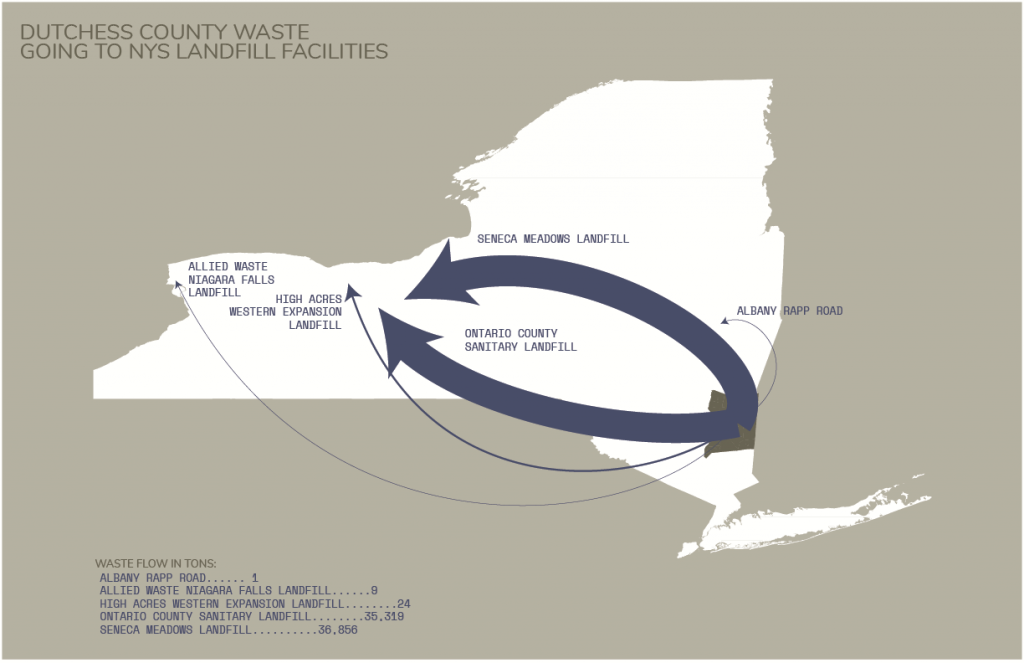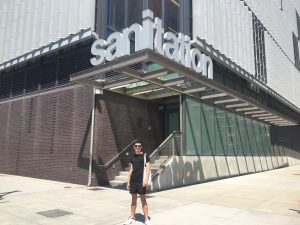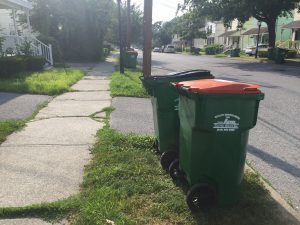Over the course of the past eight weeks, I have been working with Dr. Seungsook Moon of the Sociology Department to further understand the systems of garbage and waste that are inherent to consumer capitalism. This project worked as preparation for Professor Moon’s six-week class of the same name to be taught in the Fall of 2018.
For the first two weeks of this project, I hunkered down in the library to research and discover theoretical texts to understand the processes of waste and garbage. Though many of these texts were not centered around Dutchess County, they helped us to understand how the county fits into the global systems of waste production, collection, management, and trade. The literature review portion of this project has been crucial to the formation of the syllabus for the class in the fall.
Following the theoretical portion of the project, we began to dig through the archives of the Poughkeepsie Journal and the Miscellany News to craft a historical timeline of the local laws around garbage, recycling, and composting throughout Dutchess County, with some comparisons to other local counties (specifically Ulster), as well as a thorough examination of policies on campus.
Simultaneously, I began to create visual representations of the data presented in the “Rethinking Waste” plan, presented by the Dutchess County Division of Solid Waste Management in 2012. This included understanding the composition of the waste produced in Dutchess County, as well as creating visual representations about where garbage and recyclables from the county are transported.

One of the visual representations that I created showing where and how much garbage from Dutchess County is being distributed at various landfills throughout New York State.
The final part of our project included scheduling and conducting interviews with local officials involved in garbage and waste management throughout the county. Though we had some difficulty with this portion of the project, as finding relevant parties who were interested and available took longer than expected, we were able to interview Atticus Lanigan of Zero to Go, an education-based waste management company based in Beacon, and have scheduled further interviews with the Deputy Commissioner of Solid Waste Management for the County, and tours of waste, recycling, and composting facilities in the Mid-Hudson region.

James on a field trip to the DSNY garage in NYC
Conducting research through the Ford Program allowed me to develop a greater knowledge of sociological theory and interest in conducting independent research throughout an extended period of time. As I prepare to write a senior thesis beginning in the fall, I am grateful for the opportunities afforded to me by the Ford Program which have strengthened my research capabilities and nurtured my interest in pursuing academic research further.

